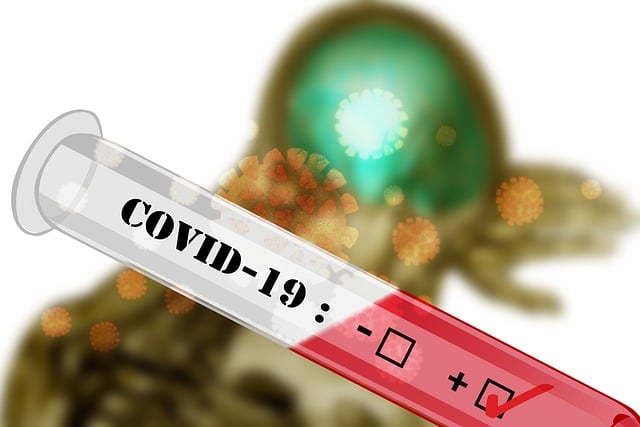Blood tests are an effective way to identify nutrient deficiencies, especially vitamins and minerals, by assessing circulating levels. Common deficiencies like Vitamin D, Vitamin B12, and iron can be discovered through detailed blood panels, enabling targeted interventions such as dietary changes or supplement recommendations. Interpreting results is crucial; specific numbers indicate optimal or suboptimal nutrient levels. After receiving results, consult a healthcare professional who can explain implications and recommend appropriate next steps, including regular follow-up tests to ensure deficiencies are addressed effectively for improved overall health.
Discover the power of a detailed blood test in identifying nutrient deficiencies. This comprehensive guide explores how these tests detect common vitamin and mineral gaps, offering crucial insights into your health. From understanding the basics of blood tests for deficiencies to interpreting results and taking proactive steps, this article equips you with knowledge. Learn which vital vitamins and minerals are often in short supply and how to address them effectively.
- Understanding Blood Tests for Nutrient Deficiencies
- Common Vitamin and Mineral Deficiencies Detected
- Interpreting Results and Next Steps
Understanding Blood Tests for Nutrient Deficiencies
Blood tests play a crucial role in identifying nutrient deficiencies, especially when it comes to vitamins and minerals. A detailed blood panel can provide valuable insights into your overall nutritional status. These tests measure the levels of various vitamins and minerals circulating in your bloodstream, offering a snapshot of what your body currently has (or lacks). By analyzing these results, healthcare professionals can pinpoint specific deficiencies, allowing for targeted interventions.
Understanding how blood tests for vitamin deficiencies work is essential. Different vitamins and minerals have unique roles in the body, and their levels can be influenced by various factors such as diet, absorption, and overall health. A comprehensive blood test assesses these markers, enabling a holistic view of your nutritional health. This information is invaluable for tailoring dietary changes, supplement recommendations, or lifestyle adjustments to address any identified deficiencies effectively.
Common Vitamin and Mineral Deficiencies Detected
A detailed blood test can reveal a range of common vitamin and mineral deficiencies that may be impacting your overall health. Some of the most frequently detected deficiencies include Vitamin D, Vitamin B12, and iron. Vitamin D deficiency is particularly prevalent in regions with limited sunlight exposure, as our bodies rely on sun exposure to produce this essential nutrient. A blood test can determine if an individual has low levels of Vitamin D, which is crucial for bone health and immune function.
Vitamin B12 and iron deficiencies are also common, often affecting individuals with certain dietary restrictions or gastrointestinal conditions. Vitamin B12 plays a vital role in nerve function and red blood cell formation, while iron is necessary for transporting oxygen throughout the body. Identifying these deficiencies through a blood test enables healthcare professionals to recommend appropriate supplements or dietary adjustments to improve overall well-being.
Interpreting Results and Next Steps
Interpreting your blood test results is a crucial step in identifying nutrient deficiencies. Each lab result will provide specific numbers or ranges that indicate whether certain vitamins or minerals are at optimal levels or require attention. For instance, a low level of vitamin D may be indicated by a 25(OH)D value below 30 ng/mL (nanograms per milliliter), while iron deficiency might show as a ferritin level below 40 μg/L (micrograms per liter). Once you have your results, consult with a healthcare professional to discuss the implications. They can help interpret the data in the context of your overall health and medical history.
The next steps will depend on the specific nutrient deficiencies identified. Your doctor may recommend dietary changes, such as incorporating more vitamin-rich foods or supplements. For example, if you’re found to have a vitamin B12 deficiency, they might suggest fortified foods or injections. Regular follow-up blood tests are often recommended to monitor your progress and ensure that the deficiencies are being addressed effectively. Remember, addressing nutrient deficiencies early can have significant benefits for your overall health and well-being.
A detailed blood test for nutrient deficiencies is a powerful tool that can provide valuable insights into your overall health. By identifying specific vitamin or mineral deficiencies, these tests enable you and your healthcare provider to take informed steps towards improvement. Whether it’s optimizing energy levels, enhancing immune function, or supporting long-term well-being, understanding your deficiency profile is the first step towards a healthier you. Remember, early detection through a comprehensive blood test can make all the difference in managing and preventing nutrient-related health issues.
